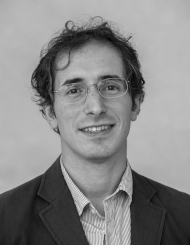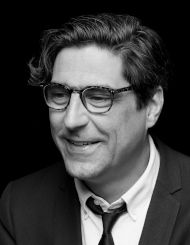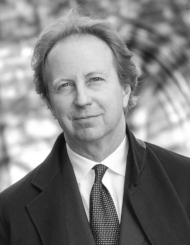
Christopher P. Heuer and Andrei Pop
present
Into the White:
The Renaissance Arctic and the End of the Image
and
A Forest of Symbols:
Art, Science, and Truth in the Long Nineteenth Century
moderated by JOSEPH LEO KOERNER
This event includes a book signing
DateNov
8
Friday
November 8, 2019 3:00 PM ET |
LocationHarvard Book Store
1256 Massachusetts Ave., Cambridge, MA 02138 |
Tickets
This event is free; no tickets are required.
|
Harvard Book Store welcomes acclaimed authors and art historians CHRISTOPHER P. HEUER and ANDREI POP for a discussion of their latest books, Into the White: The Renaissance Arctic and the End of the Image and A Forest of Symbols: Art, Science, and Truth in the Long Nineteenth Century. Their discussion will be moderated by JOSEPH LEO KOERNER, Harvard professor and fellow art historian.
About Into the White
European narratives of the Atlantic New World tell stories of people and things: strange flora, wondrous animals, sun-drenched populations for Europeans to mythologize or exploit. Yet, as Christopher Heuer explains, between 1500 and 1700, one region upended all of these conventions in travel writing, science, and, most unexpectedly, art: the Arctic. Icy, unpopulated, visually and temporally “abstract,” the far North―a different kind of terra incognita for the Renaissance imagination―offered more than new stuff to be mapped, plundered, or even seen. Neither a continent, an ocean, nor a meteorological circumstance, the Arctic forced visitors from England, the Netherlands, Germany, and Italy, to grapple with what we would now call a “non-site,” spurring dozens of previously unknown works, objects, and texts―and this all in an intellectual and political milieu crackling with Reformation debates over art's very legitimacy.
In Into the White, Heuer uses five case studies to probe how the early modern Arctic (as site, myth, and ecology) affected contemporary debates over perception and matter, representation, discovery, and the time of the earth―long before the nineteenth century Romanticized the polar landscape. In the far North, he argues, the Renaissance exotic became something far stranger than the marvelous or the curious, something darkly material and impossible to be mastered, something beyond the idea of image itself.
About A Forest of Symbols
In A Forest of Symbols, Andrei Pop presents a groundbreaking reassessment of those writers and artists in the late nineteenth century associated with the Symbolist movement. For Pop, “symbolist” denotes an art that is self-conscious about its modes of making meaning, and he argues that these symbolist practices, which sought to provide more direct access to viewers and readers by constant revision of its material means of meaning-making (brushstrokes on a canvas, words on a page), are crucial to understanding the genesis of modern art. The symbolists saw art not as a social revolution, but as a revolution in sense and how to conceptualize the world. The concerns of symbolist painters and poets were shared to a remarkable degree by theoretical scientists of the period, who were dissatisfied with the strict empiricism dominant in their disciplines, which made shared knowledge seem unattainable.
The problem of subjectivity in particular, of what in one's experience can and cannot be shared, was crucial to the possibility of collaboration within science and to the communication of artistic innovation. Pop offers close readings of the literary and visual practices of Manet and Mallarmé, of drawings by Ernst Mach, William James and Wittgenstein, of experiments with color by Bracquemond and Van Gogh, and of the philosophical systems of Frege and Russell―filling in a startling but coherent picture of the symbolist heritage of modernity and its consequences.
Praise for Into the White
"For early modern European explorers, the arctic presented both a physical and an epistemological challenge, as unseeable and ungraspable as the invisible God. Into the White elegantly captures how the arctic confounded vision, geographic knowledge, and humanistic verities. Moving fluently across time periods, and making a major contribution to conversations about globalism, art, and ecology, Heuer challenges the complacent understanding of “the global Renaissance” and generates new ways of thinking across disciplinary boundaries." ―Rebecca E. Zorach, Mary Jane Crowe Professor in Art and Art History, Northwestern University
Praise for A Forest of Symbols
"Vibrant and lucid, Andrei Pop's new book is a superb account of symbolism in art, ideas and culture in the nineteenth century. His history of art is grounded in a deep engagement with philosophical and literary reflections on the symbol in the period." ―Jas' Elsner, Corpus Christi College and University of Chicago
Walking from the Harvard Square T station: 2 minutes
As you exit the station, reverse your direction and walk east along Mass. Ave. in front of the Cambridge Savings Bank. Cross Dunster St. and proceed along Mass. Ave for three more blocks. You will pass Au Bon Pain, JP Licks, and TD Bank. Harvard Book Store is located at the corner of Mass. Ave. and Plympton St.
Unable to attend a Harvard Book Store author event? You can still pre-order a signed book by one of our visiting authors.
While we can't guarantee fulfillment of a signed book pre-order, our authors are almost always able to sign extra books to fulfill such orders.
Ordering a signed book on harvard.com:
- Add the book to your shopping cart and then click Checkout.
- Specify in Order Comments that you want a signed copy of the book.
- Please note: online orders for signed copies must be placed at least one business day before the event. If you are ordering the day of, please call us instead.
Ordering a signed book by phone:
- Call us at (617) 661-1515 and one of our booksellers will take your order. Specify you'd like a signed copy.
- If you are requesting a personalized inscription and/or requesting your book be shipped, we'll need to take down credit card information. If you are planning to pick up the signed book in the store, you can pay on pick-up.
FAQ:
Can I request a personalized inscription?
Unless otherwise noted, we are happy to take requests for the author to sign your book to a specific person, but we can't guarantee it. If you do get a personalized inscription, the book will be non-returnable. We will require credit card information when you place the order.
Do signed books cost more?
There is no extra fee for a signed book!
Do I have to pick it up in the store, or can you deliver my signed book?
As with all web or phone orders, we can hold your book for in-store pickup, or ship it anywhere in the country.
I am planning to attend an author event. Do I need to pre-order a book?
No need. We'll be selling books at the event, and nearly all of our events include a signing at the end of the talk.
More questions? Give us a call!
Harvard Book Store's Friday Forum series takes place on Friday afternoons during the academic year as a way to highlight scholarly books in a wide range of fields, with a particular focus on local scholars.
Featured event books will be for sale at the event. Thank you for supporting this author series with your purchases.
(617) 661-1515
info@harvard.com
Media Inquiries
mediainquiries@harvard.com
Accessibility Inquiries
access@harvard.com
Classic Totes
Tote bags and pouches
in a variety of styles,
sizes, and designs, plus mugs, bookmarks, and more!
Shipping & Pickup
We ship anywhere in the U.S. and orders of $75+ ship free via media mail!
Learn More »Noteworthy Signed Books: Join the Club!
Join our Signed First Edition Club (or give a gift subscription) for a signed book of great literary merit, delivered to you monthly.
Learn More »










